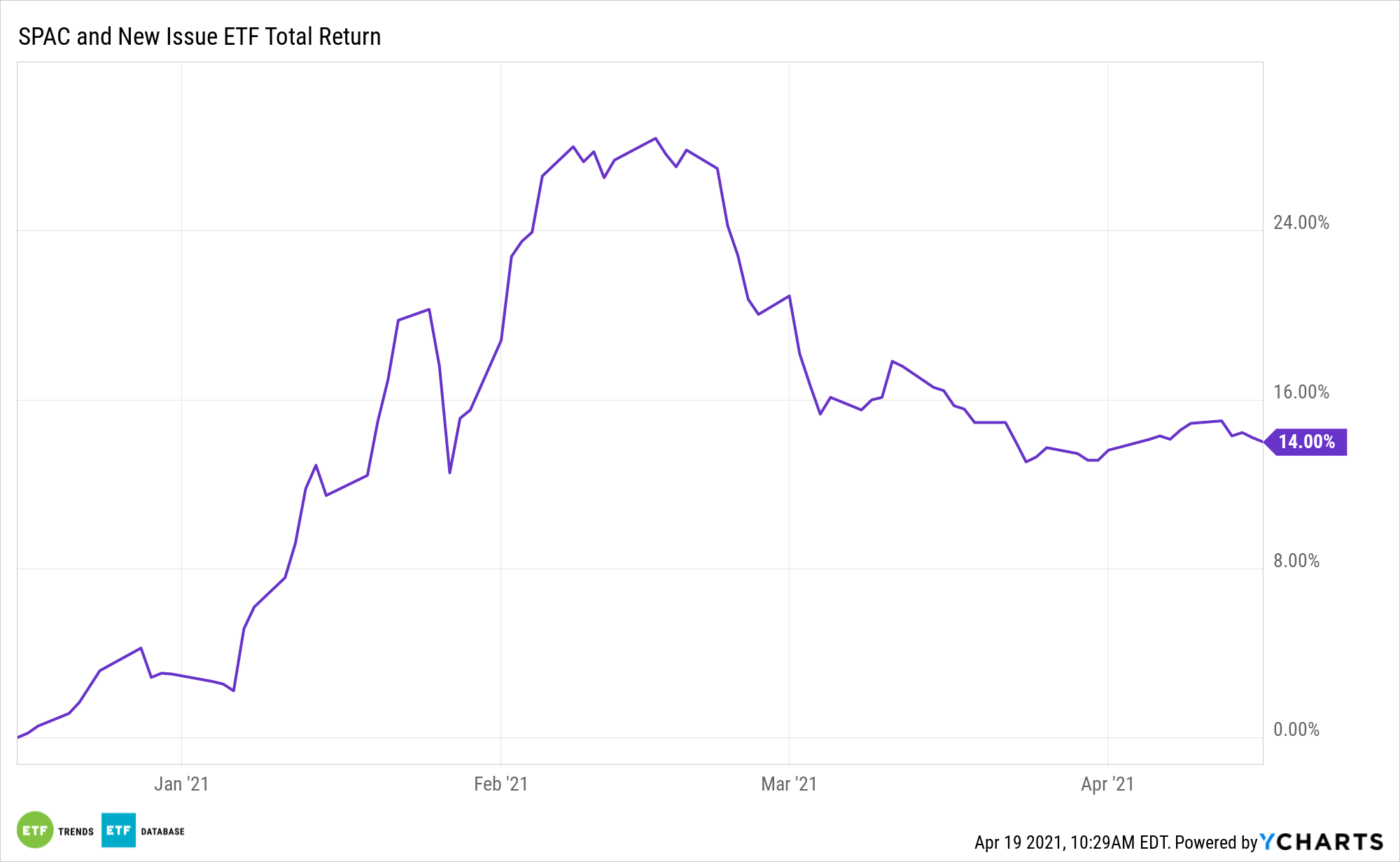Special purpose acquisition companies (SPACs) have recently encountered some rough spots. Investors may want to stay flexible in the space with active management and the SPAC and New Issue ETF (SPCX).
According to Tuttle, the most appropriate strategy for managing a portfolio of SPACs is through active management, as it can be more flexible in reacting to shifting market events. This is no place for an index fund based on a rigid set of rules. When looking at investing in a SPAC, focusing on the management team is key.
“We remain cautious in assessing post-merger performance because most SPACs listed in 2020 and 2021 are still looking for targets. As the number of SPACs proliferate, how they perform post-merger will be worth monitoring going forward,” according to S&P Dow Jones Indices.

‘SPCX’ Could Be Special Again
Picking the winners of individual SPACs can be very difficult. The ETF structure allows investors to access the most liquid SPAC IPOs in a diversified basket. SPCX allows both financial advisors and retail investors to participate in an IPO private equity style of investing. Those are meaningful traits because many post-merger companies struggle after SPAC deals, underscoring the potential benefits of eschewing selection of individual names and embracing SPCX’s active approach.
Competition is fierce in the SPAC landscape, and differentiation is important for providers seeking to separate themselves from the masses.
SPACs have grown in popularity as they increasingly attract high-worth, credible sponsors. As the quality of their founders and the success of their merger companies grow, so does their integrity in the wider investment community.
See also: ETF of the Week: SPAC & New Issue ETF (SPCX)
“After the deal announcement, the excess return distribution was pushed to extremes, with large positive and negative excess returns observed. The mean excess return, however, was about 0. Holding SPACs 30 days post-deal announcement, in general, led to underperformance versus the S&P SmallCap 600,” adds S&P Dow Jones.
Blank-check firms are hot as the IPO process is institutionalized, cumbersome, and inflexible, especially in adapting to the Covid-19 reality where virtual roadshows are less effective. With SPACs, there’s an alternative route for a company to go public, which can be cheaper, quicker, more transparent, and involves agreements and processes within greater purview and control of the company.
For more news, information, and strategy, visit the Active ETF Channel.
The opinions and forecasts expressed herein are solely those of Tom Lydon, and may not actually come to pass. Information on this site should not be used or construed as an offer to sell, a solicitation of an offer to buy, or a recommendation for any product.








